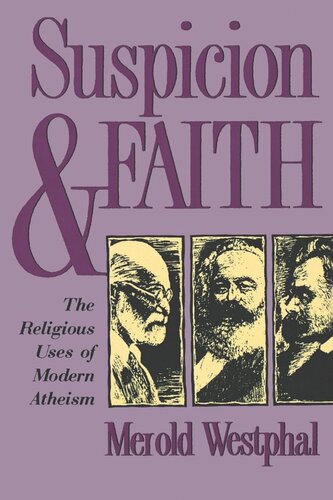

Most ebook files are in PDF format, so you can easily read them using various software such as Foxit Reader or directly on the Google Chrome browser.
Some ebook files are released by publishers in other formats such as .awz, .mobi, .epub, .fb2, etc. You may need to install specific software to read these formats on mobile/PC, such as Calibre.
Please read the tutorial at this link: https://ebookbell.com/faq
We offer FREE conversion to the popular formats you request; however, this may take some time. Therefore, right after payment, please email us, and we will try to provide the service as quickly as possible.
For some exceptional file formats or broken links (if any), please refrain from opening any disputes. Instead, email us first, and we will try to assist within a maximum of 6 hours.
EbookBell Team

4.7
76 reviewsMarx, Nietzche, and Freud are among the most influential of modern atheists. The distinctive feature of their challenge to theistic and specifically Christian belief is expressed by Paul Ricoeur when he calls them the "masters of suspicion." While skepticism directs its critique to the truth or evidential basis of belief, suspicion asks two different, intimately intertwined questions: what are the motives that lead to this belief? and what function does it play, what work does it do for the individuals and communities that adopt it.
What suspicion suspects is that the survival value of religious beliefs depends on satisfying desires and interests that the believing soul and the believing community are not eager to acknowledge because they violate the values they profess, as when, for example, talk about justice is a mask for deep-seated resentment and the desire for revenge. For this reason, the hermeneutics of suspicion is a theory, or group of theories, of self-deception: ideology critique in Marx, genealogy in Nietzsche, and psychoanalysis in Freud.
Suspicion and Faith argues that the appropriate religious response ("the religious uses of modern atheism") to these critiques is not to try to refute or deflect them, but rather to acknowledge their force in a process of self-examination.